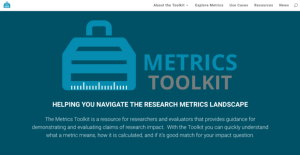General Interest
Back to Top
|
 |
|
LGBTQ&A
|
Social studies |
|
From political figures to pop-culture icons, LGBTQ&A is a podcast with a range of star-studded guests. The title's play-on-words accurately summarizes the content of the show, which features "weekly interviews with the most interesting LGBTQ+ people in the world." Launched in 2016, the show hopes to document the full extent of LGBTQ+ history and the full experience of LGBTQ+ individuals, moving "beyond transition and coming out stories to get to know each person, their accomplishments, their failures, and how they got to where they are today." In its more than 100 episodes, the show has hosted such guests as actress and advocate Laverne Cox, award-winning author Roxane Gay, and former presidential candidate Pete Buttigieg. Jeffrey Masters, a New York City-based producer, hosts the show. It is produced by The Advocate (a magazine dedicated to LGBTQ+ news) and GLAAD (a media monitoring organization dedicated to equality). Listeners can tune in on Apple Podcasts and Spotify, among other favorite podcast platforms. [EMB] |
|





|
|
 |
|
 |
|
Williams College Museum of Art: Collection Explorer
|
Arts |
|
Goodbye boring search bar, hello interactive search grid. Putting a creative twist on traditional databases, Williams College Museum of Art (WCMA's) Collection Explorer invites users into a "birds-eye" view of more than 12,000 pieces of art. Click on a piece to zoom in and find basic record information (including title, date, maker, and material). The mosaic structure fuels curiosity; after all, half of the fun is the thrill of the unknown as users click around the database, unsure of what will be discovered. Perhaps readers will stumble upon bright prints like Child with Pretend Animal by Karel Appel or ornate textiles like the Adire eleko wrapper made by the Yoruba Cultural Group (Nigeria). Feeling overwhelmed by the volume of work? Filters at the top of the grid sort these pieces by medium (for example, drawing, print, or sculpture). For users who prefer a conventional browser experience, a search bar at the top of the database allows for keyword filtering. This tool is a subsection of WCMA's Digital Project, a Mellon Foundation-funded initiative to create open and accessible art resources. [EMB] |
|





|
|
 |
|
150 Science Experiments
|
Science |
|
The name says it all. At the link above, readers will find 150 science experiments, allowing for enough STEM discoveries to last through spring. These experiments are organized into several categories, including Water Science Activities, Force and Movement Experiments, and Space Science Projects. Many of these activities involve common household objects, perfect for caregivers juggling school-from-home. For example, "What Freezes First ... Hot or Cold Water?" (found under "Water Science Activities") only requires two cups of water, a stirring utensil, a stopwatch, a freezer, and a pen and paper to record results. A similarly simple activity, "Oreo Cookie Moon Phases," requires five materials (including, of course, oreo cookies). This activity is found in the Space Science Projects section. In addition to a plethora of experiments, the site has a category for Useful Science Websites, linking out to topical sites in multiple science fields. These resources are curated by Fizzics Education, an Australian company with more than a decade of experience with STEM outreach, programming, and events. [EMB] |
|





|
|
 |
|
Journal of Computer Applications in Archaeology
|
Social studies |
|
Founded in 2017, the Journal of Computer Applications in Archaeology continuously publishes scholarship on a range of topics, including spatial analysis, semantic web, and statistics. The journal hopes "to foster debate about the crucial role of digital technologies within archaeology, and to promote the theoretically informed and interdisciplinary use of digital methods." Interested readers can view the included scholarship on the Content tab, sortable by Articles, Issue Archive, and Special Collections. The Articles section labels content as a "position paper," "case study," or "research article" for easier browsing. The Issue Archive categorizes articles by yearly installments (currently available from 2018-2020). The Special Collections section highlights three special issues on overcoming illicit antiquities trade, applying lidar practice to archaeology, and analyzing digital scholarship in the field. Computer Applications and Quantitative Methods in Archaeology (CAA) supports the journal, though it is independently governed by its Editorial Board (led by Managing Editors Arianna Traviglia, Italian Institute of Technology, Italy and Philip Verhagen, Vrije Universiteit, Amsterdam, Netherlands). [EMB] |
|





|
|

















